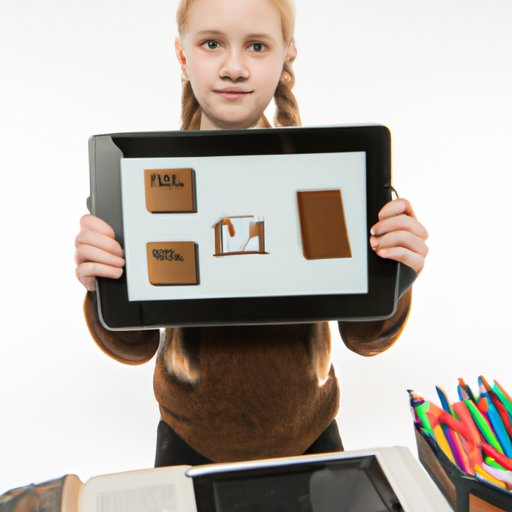
Introduction
Education has been a crucial part of human history. From ancient times to modern days, education has played a significant role in shaping our society. Education is not just about learning, but it is about knowledge acquisition, personal growth, and development. In this comprehensive guide, we will explore what education is, the different types of education, the importance and impact of education, its history and evolution, and the future of education.
Education 101: A Comprehensive Guide to What Education Actually Is
Education comes from the Latin word “educare,” which means to “bring up” or “rear.” Education is a process of acquiring knowledge, skills, values, habits, and attitudes through various means, including reading, writing, listening, and observing. Education is not just about imparting knowledge, but it is also about developing critical thinking, problem-solving, and decision-making skills.
The goal of education is to help individuals acquire knowledge and skills that will enable them to pursue their goals in life. Education helps individuals become responsible, productive, and contributing members of society. The objective of education is to foster intellectual, emotional, social, and physical development in individuals.
There are different types of education that include formal and informal education. Formal education is structured, systematic, and provided by schools and universities. Informal education, on the other hand, does not follow any formal curriculum, and it is often self-directed or provided through non-traditional means. Informal education can occur in many settings, such as at home, work, or through community-based programs.
Beyond the Classroom: Examining the Different Forms of Education
Formal education is not the only way to learn. Informal education is just as important, and it can take many forms. Non-traditional forms of education have become increasingly popular in recent years, such as online courses and vocational training. These offer flexible learning opportunities that allow individuals to balance their work and personal lives while pursuing educational goals.
Online courses have become increasingly popular, especially with the advancement of technology. These courses offer students a flexible and self-paced way of learning, where they can interact with other students and faculty members from around the world. Additionally, vocational training provides students with practical skills that they can use in the workforce; these skills may include things such as carpentry, plumbing, and electrical work.
Why Education Matters: Understanding the Importance and Impact of Education
Education is essential because it has several benefits, both personal and societal. Education can open doors to greater job opportunities, higher earning potential, and increased job satisfaction. It also increases an individual’s ability to think critically and make informed decisions about their lives. Education is also essential for personal growth and development, it enhances one’s self-awareness, and it helps individuals grow intellectually and emotionally.
Education also has a significant impact on society. It is an essential tool for combating poverty, promoting social equality, and building inclusive societies. Education is crucial in promoting civic engagement and creating informed citizens who can contribute to society. Furthermore, education can play a crucial role in addressing societal issues such as inequality, gender-based violence, and environmental degradation.
From Plato to Modern Times: A Brief History of Education and Its Evolution
The history of education dates back to ancient Greece and Rome. In ancient times, education was mostly for the elite and was focused on philosophy, mathematics, and the natural sciences. During the Middle Ages, education was mostly provided by the Church, and it focused on theology and the humanities. In the Renaissance period, education became more focused on the liberal arts and the humanistic approach to learning.
During the Enlightenment period, education saw significant changes. The focus shifted from religious dogma to rational thought and scientific inquiry. The Industrial Revolution led to the development of mass education, and it became an essential tool for social mobility. Education became more accessible, and the curriculum expanded to include subjects such as social studies, science, and foreign languages.
Education has continued to evolve over time. Educational philosophy has shifted from a teacher-centered approach to a learner-centered approach. Technology has also played a crucial role in the evolution of education. It has become a vital tool for learning, and it has made education more accessible and flexible.
The Future of Education: Exploring Innovations and Changes in the Education Landscape
The future of education is exciting. Advancements in digital technology have opened new frontiers in education. Online learning, personalized learning, and digital technologies are changing the education landscape. They offer students new ways of learning that are adaptable to their individual preferences, learning styles, and schedules.
The rise of artificial intelligence and machine learning has also opened up new opportunities in education. Adaptive learning technologies can help students learn more effectively by tailoring their learning experiences to their individual needs. It also helps teachers in providing personalized instruction to students, tracking their progress, and identifying areas where they need additional support.
Conclusion
Education is an essential tool for personal and societal growth and development. It has evolved over time, and it will continue to evolve as the needs of society and individuals change. Education is not just about learning, it is about personal growth, critical thinking, and civic engagement. To fully reap the benefits of education, we must embrace non-traditional forms of education, continue to innovate and adapt to changing needs.
Thanks for reading this comprehensive guide to education, we hope it provided useful insights on education, its impact, and its evolution.




